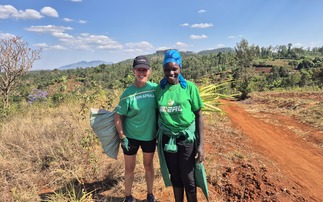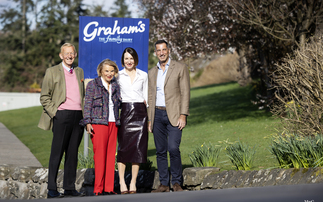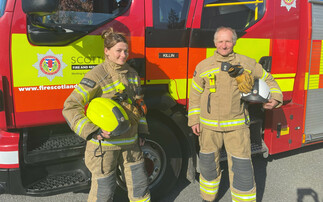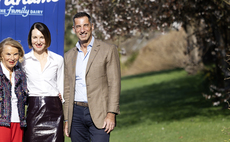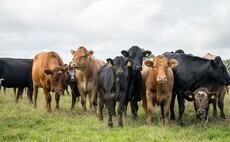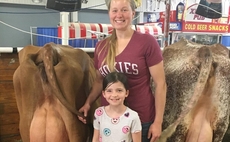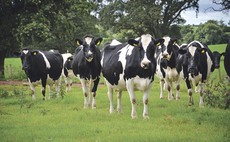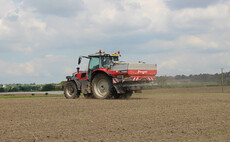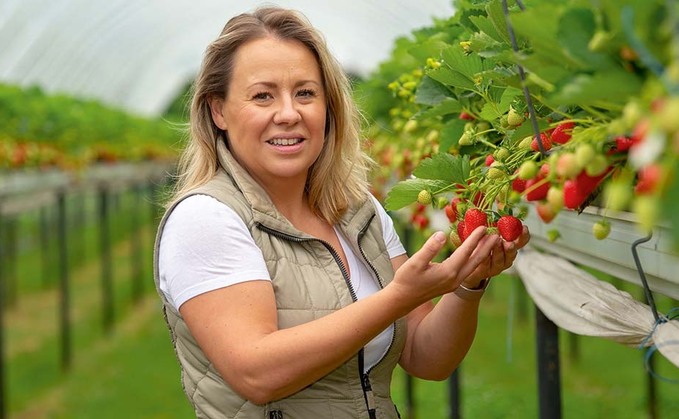
Juggling the demands of a large-scale farm business, growing a brand and motherhood are challenges Annabel Makin-Jones has taken in her stride. Hannah Park finds out how she is making sure this year's harvest goes without a hitch.
They say if you want something doing, ask a busy person.
An expression which is certainly applicable to Annabel Makin-Jones, who in the past 14 months has launched her own Annabel's Deliciously British range of strawberries, her own brand of non-alcoholic branded drinks, Tame and Wild, together with jam and honey products most recently this summer.
Far from hindering business progress, ongoing Covid-19 associated challenges have done little to deter mother-of-two Annabel, who grew up on the family farm at Sturton Grange, West Yorkshire, where she continues to build her successful strawberry empire.
She says: "My Grandfather, Edmond, bought the farm in the 50s to grow rhubarb, and then my Dad, Chris, developed it into an arable operation growing mainly cereals, as well as importing and grading potatoes.
"I loved farming throughout my younger years. I grew up helping my Dad, sat on the sprayer and helping whenever I could and as I got older, I worked in the farm office.
"Winters were busy followed by quieter months in summer. Strawberries offered a summer outlet and a good return, and at the time were a good option for the business in offering an alternative to struggling arable and potato prices.
"Like anything, you learn and get better as you become more experienced. I really believe we are now starting to reap the rewards with the brand. We are in control. We are not being told what packaging we can use or what the specification is. We get to decide those things for ourselves, which I find really exciting."
The family farming operation now extends to 445 hectares (1,100 acres) over three sites, managed in various share farming agreements, with 140ha (350-acre) Sturton the home of the strawberry business.
Originally, the venture was one Annabel had planned to get off the ground during a summer at home after graduating from Harper Adams university in 2004, before starting her own deli business.
"My dissertation was a business plan for a delicatessen and a sandwich chain business, which I planned to open in Leeds after finishing university," Annabel says.
"Dad and I started the strawberry growing idea together. It was initially going to be for a few months over summer, but I ended up making a lot of changes in that short period and decided I was not going to be going anywhere.
"We had a good working relationship with Morrisons, which agreed to take them direct in the early days, so in the second year we grew the same again and it really just snowballed from there, the potatoes began to take a back seat and strawberries just took over."
Now 16 years on, the initial 6ha (15 acres) growing 120 tonnes of strawberries has grown into an enterprise harvesting 1,850t from 400km of tabletops in polytunnels from May to October.
Huge infrastructure investments have gone into getting the strawberry operation where it is today, from polytunnels and tabletops, to the on-site pack house and various pieces of equipment, including two blast chillers at a cost of £250,000 apiece which take strawberries from 28degC post-picking to 2degC within 30 minutes.
But investment in people has also been significant, with 85 caravans on-site, a shop, laundrette and other facilities including a gym for a workforce of 250, mainly from overseas, to make use of during the season.
Ensuring harvest continues to run smoothly amid the Covid-19 pandemic means a slightly different approach has been taken this year.
"We devised a meticulous system of keeping our teams in communities of eight groups of 10 for working, socialising, laundry and shopping, so if one team came down with symptoms and needed to isolate, we could rely on the other teams to fill in," says Annabel.
"Luckily no-one has been taken ill, but staff and staff retention are really important to us as without them we would not be doing what we are doing, so looking after them is really important."
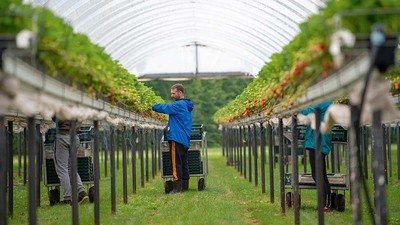
A proportion of non-branded strawberries are sold to Morrisons and Aldi, but the main of the crop is now sold under the Annabel's Deliciously British brand into premium food retailers including Harrods, Fortnum and Mason and Booths, as well as into high-end food service and restaurants.
Despite the loss of wholesale customers during the lockdown period, Annabel says selling to diversified markets and good relationships with retailers stood her in good stead and sales through retailers, she says, have been through the roof.
"People have been staying at home and have not been able to eat out," she says. "So, in lockdown all that business has shifted to retailers. I do think there has also been an element of people treating themselves too, to products and brands they may not buy to the same extent during normal times."
On getting her product onto the shelves of premium retailers, Annabel says: "I approached two of the best wholesalers in London and basically just pitched my product and story to them, and they liked it.
"I think it is something they could really get onboard with - I am a women farmer, trying to grow a business and brand with two young children while also supporting the wider community. Every punnet we sell supports The
Prince's Trust via a donation and I am in the process of trying to make the farm totally sustainable, with zero waste."
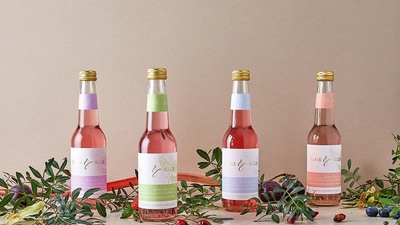
The Tame and Wild drinks brand was launched earlier this year.
Steps towards sustainability and eliminating food waste on the farm are well underway, with the launch of the Tame and Wild drinks brand earlier in the year, and more recently jam and honey products this summer which are all set to play their part in Annabel's vision.
The farm also moved to all compostable punnets last year in a bid to remove plastic from the supply chain, water requirements for crop irrigation come from a 25 million gallon lake on-site, and electricity to power the pack house generated from solar panels.
"I have always been concerned about the number of imperfect or wonky berries which do not make the grade that were wasted," says Annabel.
"Most of the big supermarket brands of jam are made from imported fruit - I see this as a way for our customer base to support British strawberry production during winter, as well as during the summer season.
"I am convinced tackling food waste on the farm makes good business sense, and in the process, we have also created great new products and extended cash-flow through more of the year which has always been an issue in producing a seasonal product."
Jam production started at the end of June this year, produced not far from the farm in Wetherby, and will be available direct and via retailers in the coming weeks. Honey production too will soon be underway, with a set-up of 20 hives across a 8ha (20-acre) field now in place.
"Protecting pollinators is so important and bees are essential to our crop and the environment, we are excited about supporting an ecosystem as well as a producing a great product to sell.
"The pandemic has changed how we shop, cook and eat. In a short space of time our relationship with food has changed, I genuinely believe we have come to value food, and the people who produce it more.
"I want my kids to feel inspired and it is exciting to be part of something that is taking off - in a sector which is still, frankly, male-dominated I do not think woman are championed enough."
Business facts
- 140ha (350-acre) site, harvesting 1,850 tonnes of strawberries from 400km of tabletops under polytunnels from May to October
- Strawberries sold under Annabel's Deliciously British brand in the main to premium food retailers and high-end food service and restaurants
- An ethos around sustainability and eliminating food waste has seen the launch of strawberry flavoured non-alcoholic branded drinks, Tame and Wild, as well as jam and honey products













